"Historical Homos" Streams All Pride Month
A New TV Series by the Out Hollywood Actor, Zachary Quinto
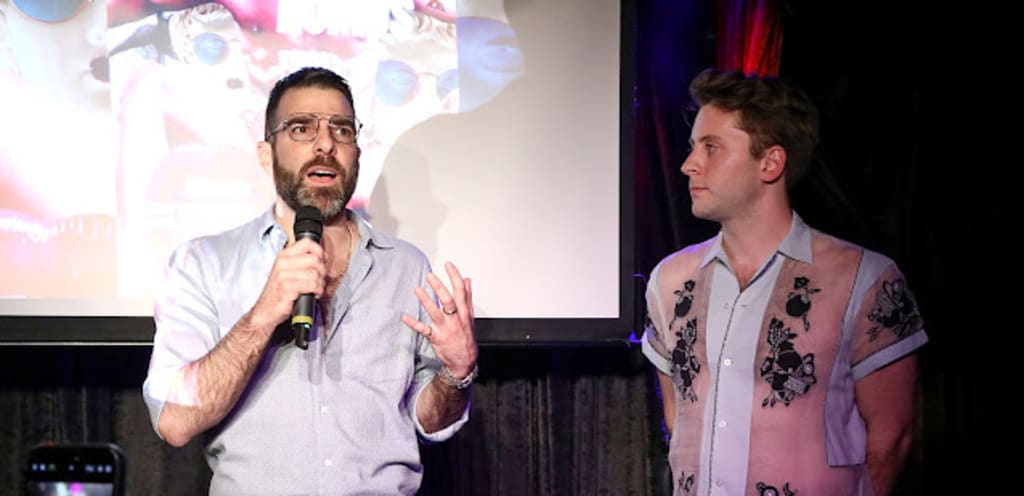
Did you know that Louis XIV’s brother, Philippe, dressed up in drag and that Leonardo da Vinci was arrested for sodomy twice? Or that Eleanor Rykener, a 13th century trans sex worker, claimed in court records that her best clients were monks because they paid more?
In Historical Homos, an original series executive produced by Zachary Quinto, hosts Bash and Donal Brophy uncover and unload the most tantalizing dish on some of these great queers of yesteryear.
The four episodes present a nice spread of L, G, B, and T, exploring male homosexuality in Greek Mythology and how these myths reflected real life in ancient Greece; the true story of Le Chevalier d'Éon, an 18th century transgender spy and soldier; the little-known bisexual proclivities of William Shakespeare and Christopher Marlowe; and the life and loves of Virginia Woolf, particularly her lesbian affair with Vita Sackville-West.
We spoke with Bash at the premiere party for Historical Homos, held last week at Club Cumming in New York City.
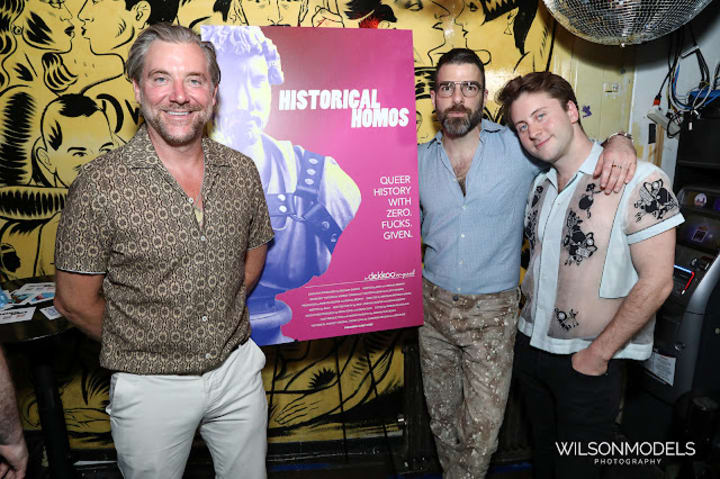
Are you excited for the series premiere?
Bash: Extremely! We worked with so many brilliant people on this on a shoestring budget and achieved an incredible product with our resources.
How did Zachary Quinto come to be involved in the project?
Bash: He got wind of it when my agent sent out our book Historical Homos: Volume One, as available IP to be developed. He happened to be working on a similar project with my co-host Donal Brophy and his partner, Emrhys Cooper. They liked our project so much we decided to join forces, and we quickly got along brilliantly. Zachary has always been a huge supporter of our vision and creative ambition for Historical Homos. He's extremely smart himself, and we're so excited to work with him on bringing Historical Homos to as many people as possible.
Historical Homos started as a book?
Bash: Historical Homos was born in August 2017 as a twisted idea for a coffee table book. Big, lavishly illustrated spreads full of stories about the Great Queers of Yesteryear. Realizing that nobody likes to read, I instead took to Instagram like a good little millennial. Lucy, my sister and the graphic designer for Historical Homos, quickly developed a stunningly original aesthetic for the brand, helping to grow an audience of 14K+ followers. Since then, the project has evolved to producing live events in NYC and London, a published volume, and now, our own podcast and TV show with Dekkoo. These first four episodes are just the beginning – we have over 100 episodes lined up and ready to go about figures and cultures from queer history, literature, and mythology all over the world.
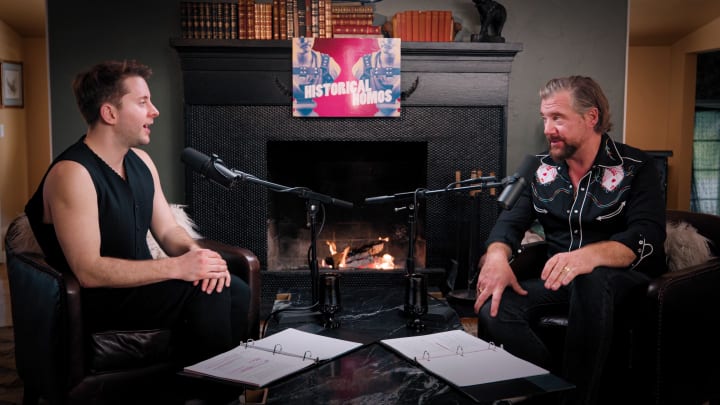
How did you become so obsessed with these great queers of yesteryear?
Bash: I'm something of an intellectual hoarder. I love all kinds of history and coming across any of these stories is like finding $5 on the street. I gotta catch them all! After a few months writing about all these Historical Homos, though, I started to recognize how much they meant to people and to me. It's incredibly powerful to find community in the past. Queer people are deprived of our ancestors in so many ways: through omission, lack of access, straight-washing, ignorance, or pure lack of awareness. To present history – and therefore the human story – as intrinsically queer means a lot to those of us who never had strong examples of people like us growing up. I grew up with liberal, artsy parents in New York City and got a stellar education, and even I didn't find very many gay male role models in my life until my late 20s. I came out at 16. That's changing a lot in the era of Ru Paul's Drag Race, Queer Eye, and the super-visibility of LGBTQ+ celebrities on social media. But there's something mystically comforting about knowing that queer people - whether they're role models or not - are watching us from the mists of history.
I also became obsessed with these stories because some of them are just too damn delicious! The second episode of our show focuses on a French transgender spy and soldier from the Enlightenment – who publicly transitioned her gender 250 years ago. Long before the word "trans" even existed. So my obsession is primarily with the stories, but then also with translating them into a contemporary idiom. Not everyone cares as much about the Enlightenment or its transgender spies as I do. But if I can tell the story of the Chevalier d'Eon with humor and modern references, then people start to feel some of my passion for the characters, their exploits, and what they might mean for the queer community today.
Do you believe in the adage that “Those who do not learn history are doomed to repeat it”?
Bash: My AP Euro teacher would scoff, and so do I. History does not repeat. There's a much better line in Cicero, which says something like: those who don't know history are doomed to remain children forever. I think that's much more true for a number of reasons. First: if you don't know history, you can't understand the present. You lack the references, context, and perspective to interpret what is happening in the world around you. There's nothing more childish than not understanding why things are the way they are. Second, because history is a powerful weapon. Far more powerful than most people realize. Who gets to tell it, and what story are they telling? Who is the expert, what's their agenda, and what do they want to us to believe? These are complicated questions that all citizens have to ask themselves when encountering any narrative of history. History is a huge part of how we think and what we believe about ourselves as individuals and societies -- as a species even! If you don't engage with it critically, you're forever at the mercy of whoever else controls the narrative.
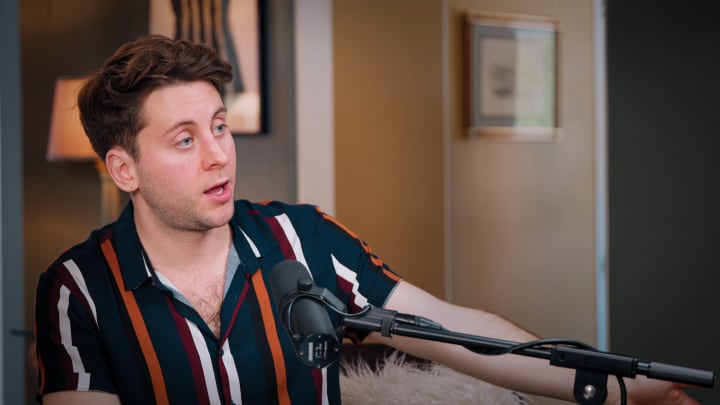
In the case of queer history, LGBTQ+ people are even more responsible for knowing our past. We turn to history to teach us how far we've come AND to prove how natural and universal it is for any society to challenge heteronormative sexualities and gender binaries. There's an idea latent in much of Western society that all this queer stuff is modern invention, which on the one hand makes LGBTQ+ people feel special ("we've come so far and we've made so much progress") and on the other helps cis-het bigots stick to their prejudiced belief that there's something new, and therefore unnatural, about us. Both viewpoints are inaccurate and must be challenged. The prejudice that LGBT and Q identities are "new" is simply ignorant of the facts. When you see the full range of queer history from around the world (from gay samurais to medieval trans people to nonbinary Roman emperors), you start to see how untenable that prejudice is.
The other viewpoint – that modern queerness is the ideal, most progressive form of queerness – is more difficult to unpick. But I think looking at queer people in other historical periods leads us to some interesting questions. We've gained so much through liberation, but what have we lost? For example, there's a certain fluidity you find in figures from the queer past, which we've recently traded in for more rigidity in our identities, labels, and self-categorization. We've also seen a recent backlash against that rigidity, as new labels like "nonbinary" resist easy categorization or taxonomies and reestablish the value of fluidity. Studying queer history has also led me to wonder whether everyone in the modern queer community has gained equally: aren't some groups actually allowed to experience queerness more readily than others? In early modern Europe, the wealthier classes were rarely reprimanded - officially or unofficially - for their queer behaviors or identities, whereas the working classes were often publicly punished. That has a lot to do with class, which still plays a major role in the queer community. Historical precedents allow us to talk about these issues.
As I said, making these comparisons with the past helps us to interpret the present. And above all, reading queer history reveals the reality that queerness is not fixed. It varies from culture to culture and period to period. Our version of it today is not necessarily the best or final say.
Watch Historical Homos on Dekkoo.

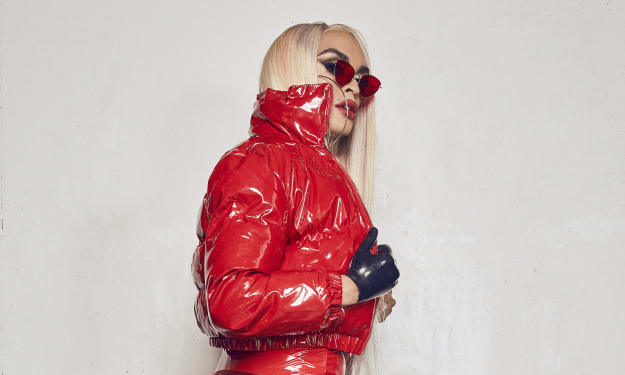

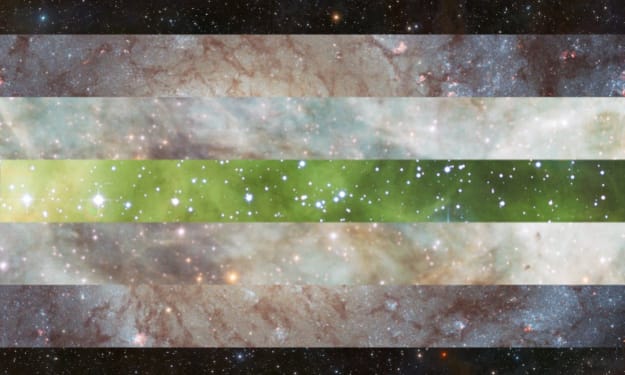

Comments
There are no comments for this story
Be the first to respond and start the conversation.